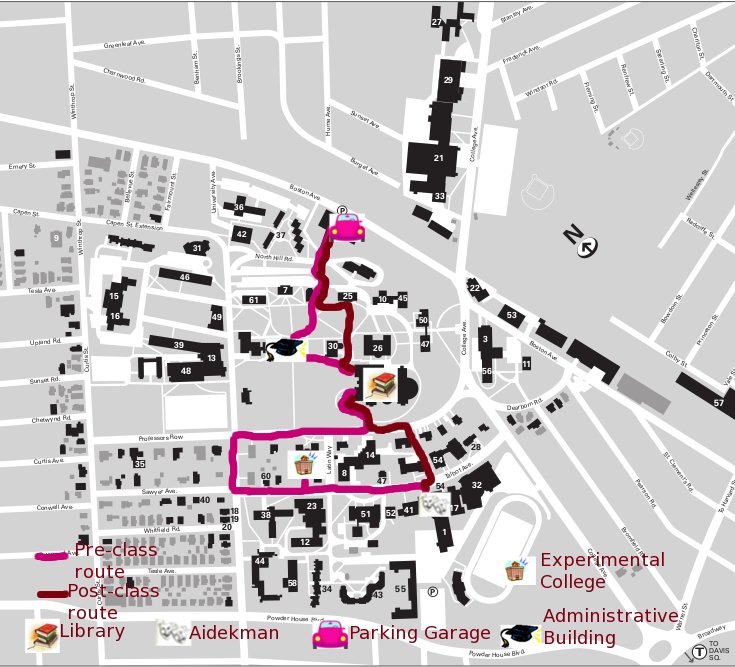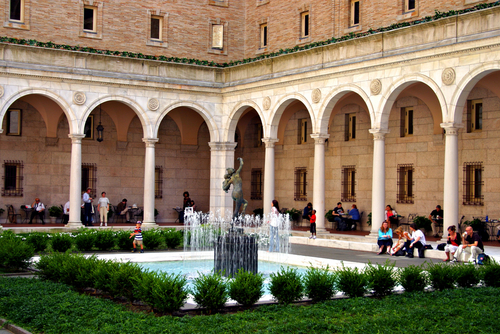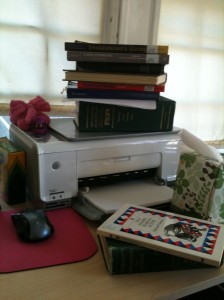For the record, two weeks is not a long time at all.
When July happened (yes, it’s July now, can you even believe it?) I began to understand that this New York trip was really right around the corner. Now, I’m only a week and a half away from bidding my lovely, airy, light apartment a fond “see you later” and heading to the Big Apple, my home, for a full month.
This has meant that I’ve been struggling to get things together here so that they won’t be left undone when I return in August. At that point, I’ll only have two weeks with which to prepare for the coming of the semester and the last thing I’ll need is to have the apartment in such a place as to be uncomfortably unfinished.
So yesterday, in an effort to get the place to where it needs to be, I organized my books.
While I had previously shelved all of my volumes, they had been shelved only in the order of how I pulled them out of boxes. Organization is just one of those things in a move that has to be left for later. There’s almost no way to organize finer than broad strokes the mass amounts of box-pulling you do when unpacking your stuff. What this means is that, while I had access to my books (technically), there was no way I could actually find any of them.
Just you try to organize a massive and eclectic body of work such as that which currently occupies my shelves.
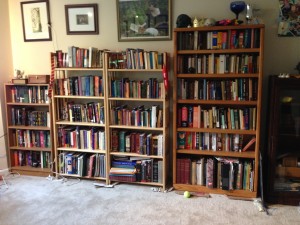
My library all cozily settled in.
I’ve been tempted, over the years, to convert to the Library of Congress system and let the greater organization of librarians tell me where I should be putting things rather than figure it out on my own. This time, I opted for my generally unconventional method: Literature (fiction) in one section (this time not subdivided by “things I read for leisure” and “things I read because they’re part of the literary canon” but rather simply alphabetized by author’s last name), reference books in another section (let me tell you how many dictionaries I own… a lot), my collection of Shakespeare’s complete works subdivided by “Complete Works” and “Individual Plays” then alphabetized by name of work, theatre reference books in their own section, theatre theory books in their own section, plays alphabetized by name of playwright, and a separate shelf for my foray into Irish Studies.
The important part is to batch intuitively. If I think of a text, I need to know where to go to find it without thinking too hard about it. Alternately, it needs to be amongst texts of a similar type so that, if I can’t find it, I can look at my shelf and know where I need to go that it might be hiding amongst its “people”. The whole affair also involves the juggling of shelf size; my shelves, while standard length, vary in height. My books also vary in height and that variance cannot be counted upon to be uniform across categories. So what to do with books that don’t belong alphabetically in a certain place, but simply won’t fit anywhere else?
As you can see, the entire mess is a jigsaw puzzle that I am more than happy doesn’t need to be addressed more than once every few years. I’m also happy that my books are finally somewhere that is home, even if I won’t be here to look after them for a little while.
And now, it’s back to archive prep and finding aids for me.

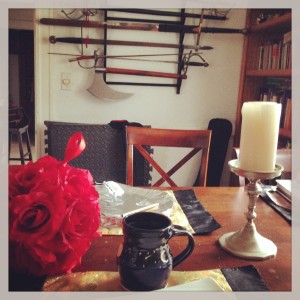
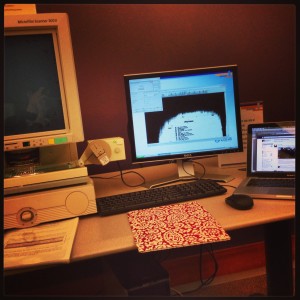
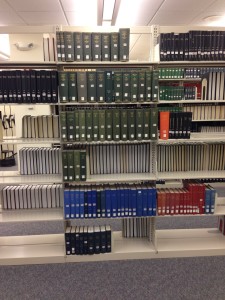


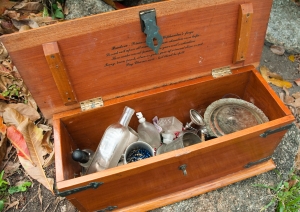 This exercise has gotten me pumped for the semester. Research, especially target and stalk research, is like a treasure hunt. Each successful finding was a new chance to feel accomplished, a new chance to learn something, and a new chance to feel like, despite any misgivings that may crop into the recesses of my mind, I can accomplish.
This exercise has gotten me pumped for the semester. Research, especially target and stalk research, is like a treasure hunt. Each successful finding was a new chance to feel accomplished, a new chance to learn something, and a new chance to feel like, despite any misgivings that may crop into the recesses of my mind, I can accomplish.


